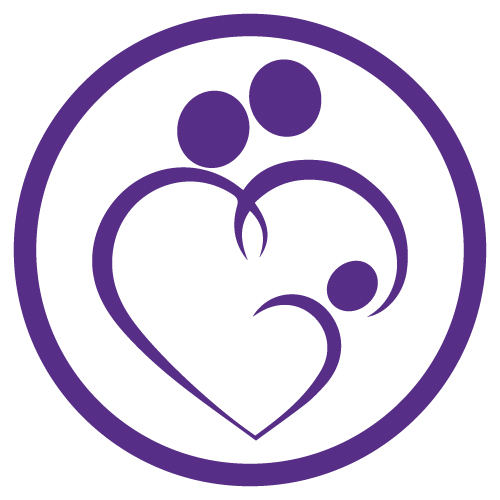
Parent-Centered Lactation Care Lecture Pack
Lactation professionals have a duty to provide care that is focused on the individual goals of the parent. The breastfeeding/chestfeeding journey is different for everyone, and if we fail to provide parent-centered care to the families we serve, we risk doing harm. This means setting aside our own personal feelings and biases to support parents in their own unique situation. This package provides a special focus on situations where exclusive at breast/chest feeding may not be possible or desired. Join our expert speakers to learn more about breast/chestfeeding after breast reduction, exclusive pumping, donor milk, supporting formula feeding families, induced lactation and achieving mahram for muslim families and breast hypoplasia.
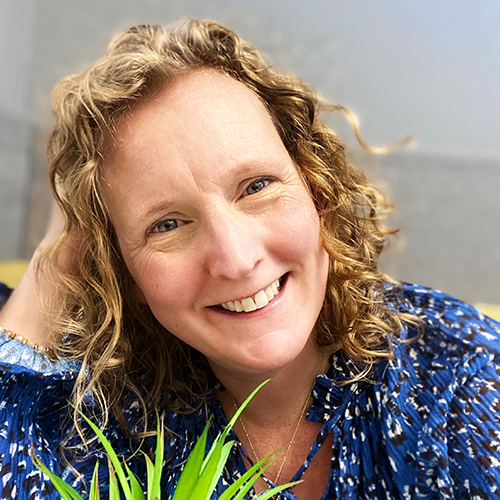

Anna Le Grange is an International Board Certified Lactation Consultant, Registered Pediatric Nurse, Mindfulness teacher and Author. She has worked with new families for over 20 years in a variety of clinical roles. Anna brings her passion for psychology, neuroscience and mindfulness into her lactation support work and facilitates other professionals to incorporate emotional well-being tools into their own lactation practice. Mother to 3 children, Anna breastfed her 3rd child following breast reduction surgery and experienced first-hand, the emotional challenges that so often relate to infant feeding complexities. She used her personal experiences alongside mindfulness and lactation knowledge, to create a toolbox of techniques for breastfeeding families, which she includes in her courses and book, The Mindful Breastfeeding Book. Anna believes whole-heartedly in prioritizing calm and connection within our breastfeeding support practices, both for our clients and ourselves. Anna is currently studying for a MSc in Positive Psychology at Buckingham New University and has spoken at various events including the Gold Lactation, ILactation Conference and Nurturing The Future.
Topic: Being Mindful: Case Studies of Mindfulness Tools in Clinical Lactation Practice - [View Abstract]
Topic: Breast/Chestfeeding After Breast Reduction - [View Abstract]
Topic: Working With Anxious Parents and Fussy Babies - [View Abstract]
1. Participants will be able to describe how breast reduction surgery affects lactation.
2. Participants will be able to describe some of the experiences faced by those breastfeeding after reduction.
3. Participants will be able to list what practical steps can be taken to support those wishing to breastfeed or chestfeed after surgery.
4. Participants will be able to explain why understanding the brain/body connection can help improve the experience of those breastfeeding after breast reduction.
5. Participants will be able to write a basic feeding with someone planning to breast or chestfeed after reduction surgery.
With breast surgery becoming more common, it's important for professionals to understand how it can affect lactation and the experience of breastfeeding or chestfeeding parents. Both an IBCLC and Mum who breastfed her daughter after having breast reduction surgery, Anna Le Grange talks through the implication of breast reduction surgery on lactation, covering both the physiological and psychological challenges that parents face. As well as sharing the experiences of those who have had breastfed after surgery, Anna introduces practical steps that supporters and professionals can take to help their clients define and strive for their breastfeeding or chestfeeding goals in a gentle and realistic way.


Bryna is a lactation consultant, mentor, educator, and birth doula in the Pacific Northwestern United States. They are active in their community as an advocate for mutual aid, reproductive justice, and reduction in barriers to care. They also own and manage an inclusive private practice. As a member of both Queer and Neurodivergent communities, offering inclusive care on every level is very important to Bryna. Their vision is to offer information and tools to providers to build a community of comprehensive, concordant, and individualized care for all families in the perinatal period.
Topic: Breastfeeding With Ease: The Impact of Infant Reflex Emergence and Integration - [View Abstract]
Topic: Rhythmic Movement for Breastfeeding Function - [View Abstract]
1. List at least 3 reasons families might feed their babies formula, and the importance of the role of the IBCLC (or other lactation supporter) in that decision-making process.
2. Explain how the demographics of the landscape of lactation support can contribute to imbalances in access to evidence-based information, support, and resources for families as they make decisions around feeding their babies.
3. Describe how to facilitate family-centered care and parental autonomy in decision-making around infant feeding.
Infant Formula feeding families often go unsupported, even ignored, in the field of lactation and infant feeding care. Even the name of the providers who are best trained in the physiology and support of infant feeding is exclusionary…Lactation Consultants. As a result, families who are infant feeding their baby or babies with formula are left without high-quality support, even though there are providers who are available and trained to help them. Whether it’s the attitude of the individual lactation supporter or the environmental biases of the family’s perinatal care, or lack of information, the fact remains that these families experience less support and care than their body feeding counterparts. Learn more about the ethics of supporting infant formula feeding families, and the responsibilities of the IBCLC or other lactation care provider.
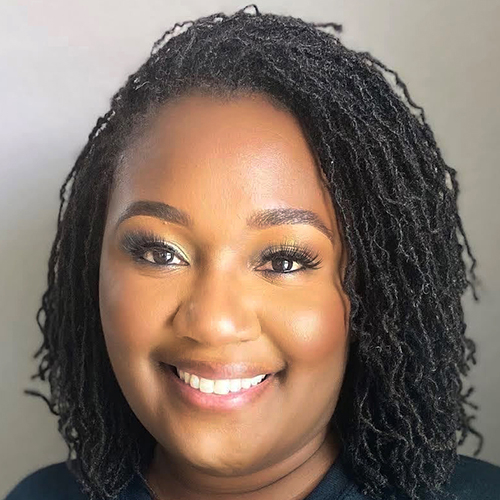

Courtney Polk is a registered nurse and International Board Certified Lactation Consultant. She is a native of New Orleans but currently resides in Dallas, Texas with her husband and their 2 children. Since graduating from Southern University School of Nursing in 2006, Courtney began her nursing career in labor and delivery and went on to earn a masters in nursing education in 2012. It wasn’t until having her son in 2014, and experiencing breastfeeding for herself that lactation became her focus and passion. Since becoming board certified she has helped countless families in the Dallas-Ft. Worth metroplex area meet or exceed their breastfeeding goals. Courtney is also the current president of the Dallas Lactation Consultant Association.
1. Learners will be able to describe the history & current trends of human milk sharing practices.
2. Explain the reasons parents may not choose donor milk and the best way to overcome those objections.
3. Explain ways lactation professionals and health care providers can promote donor milk.
Donor milk is often an underutilized resource. Human milk donation has happened since the beginning of time through wet nursing and bottles. There are many reasons babies may need extra nutrition that their parents temporarily may not be able to provide. When supplementing becomes necessary donor milk can be a viable and sustainable option. However, many parents they have never heard of it and/or they don't know where to get it. Also, many parents have an abundance of milk and may not know what to do with it. This presentation will focus on how lactation professionals can do a better job of promoting donor milk and thereby promoting exclusive breastfeeding.
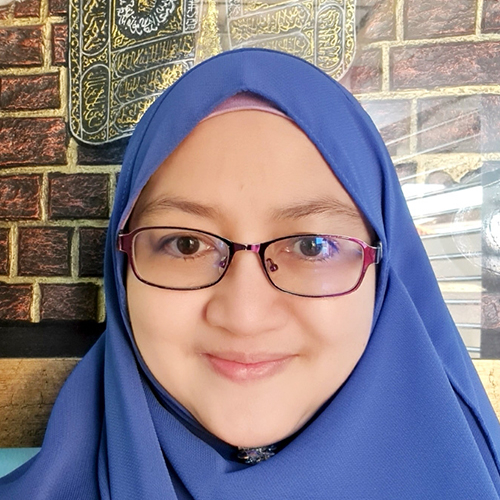

Dr. Anisa has been working as a Consultant Pediatrician for 11 years & an IBCLC for 12 years. Dr. Anisa has a strong belief that breastfeeding saves lives of infants & young children. In order to ensure improvement of the practice of exclusive breastfeeding rate in Malaysia, she established an ambulatory care center with breastfeeding consultation services for the residents in Johor (state) & founded a networking platform for home visit counselling session by trained lactation counsellors that is BCNP (Breastfeeding Counselors Networking Program) since January 2016. Apart from above mentioned, Dr. Anisa is a mother of 4 sons with various breastfeeding experiences, blending with knowledge gained from managing cases in clinic, conferences & readings, she is confident to give lectures related to children health & lactation at national level and internationally. As fractional pediatric lecturer in Monash University Malaysia, she teaches medical students the importance and benefits of breastfeeding to our children & maternal health with hope that future young doctors will support, protect & promote breastfeeding in their services. Since 2009, Dr. Anisa has been a National BFHI Auditor, National lactation center fascilitator, trainer & speaker, and has published 2 books on breastfeeding - Induced lactation guideline & breastfeeding comic (Dr Super Pot Pet). Her deep interest in induce lactation program leads her to present this topic for GOLD Lactation.
1. Explain the Islamic rule & practice about how mahram status in adopted children with their adopted parents can be achieved by breastfeeding.
2. Describe the common challenges encountered when supporting induced lactation and the importance of effective consultation.
3. Describe the clinical protocol needed in order to succeed with induced lactation.
The meaning of mahram in Islam is a person with whom marriage is not permissible (haram) and the adopted baby will be able to achieve this mahram status by breastfeeding on her/his adopted mother for at least 5 times (satisfied feeding) before 2 years old according to the Muslim calendar. Subsequently, the baby status is similar to biological child of the adopted parents. Effective consultation is required to ensure the successful process of induced lactation for the aforementioned purpose.
During consultation, breastfeeding benefits are crucial information to be explained to the adopted parents, however achieving mahram status is an additional motivational factor. According to research done by Che Abdul Rahim,N. et.al (2020) there were 6 factors that impacted successful induction of lactation: 1) appropriate protocol, 2) support system, 3) knowledge on breastfeeding technique & use of equipment, 4) time management, 5) mother's nutrition, 6) perseverance & strong motivation through follow up & additional information about expected challenges to overcome.
This presentation provides details on how to successfully induce lactation and how this knowledge can be used to support all families, including Muslim families who are breastfeeding to achieve mahram.
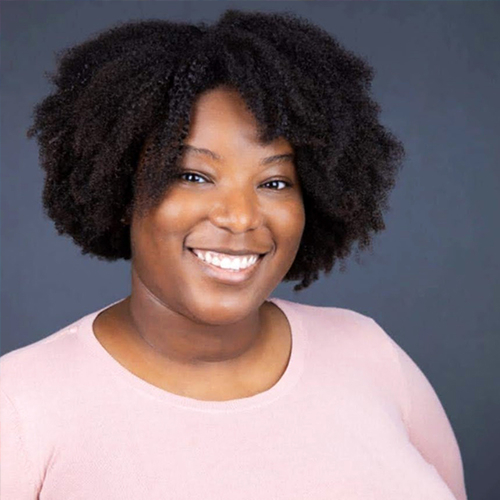

Nichelle Clark is an International Board Certified Lactation Consultant (IBCLC), wife, and mother of one residing in Chesapeake, Virginia. She is the owner of SonShine & Rainbows Lactation Services. Born and raised in Upper Marlboro, MD, Nichelle joined the United States Navy in 2010 and served honorably for 7.5 years. In 2020, she founded Black Breastfeeding 365, an organization that seeks to bridge the gap between Black Parents and the Lactation Professionals who serve them. When she’s not spending time with her husband and 4 year old son, she serves as a United States Lactation Consultant Association (USLCA) Advisory Board Member and Clinical Lactation Journal Social Media Editor. In her spare time, she admins multiple online support groups for People of Color, providing breastfeeding support and lactation education to her community. As an exclusive pumping mom herself, Nichelle is a champion for breastfeeding parents to write their own rules and breastfeed their way.
1. Define Breastfeeding/Chestfeeding.
2. Explain the importance of checking biases and how they may impact care.
3. Describe at least 3 reasons why parents may utilize breast pumps.
4. Describe how IBCLCs and Lactation Professionals can impact and facilitate proper use of breast pumps.
5. Explain what the WHO Code says about chestfeeding/breastfeeding via a pump.
The first breast pump is credited to being invented/patented in 1854 by O. H. Needham. Since then, the pump industry has exploded, making breast pumps more accessible throughout the Western World. While technology has transitioned with the times, the bias that exists within lactation has not. Clinicians are still drawing hard lines on what the “true” definition of breast/chestfeeding is. In this presentation, we’ll dive into why there’s still a debate and answer the age-old question. Spoiler alert: Pumping is breastfeeding and lactation professionals have a responsibility to support parents to meet their pumping goals.
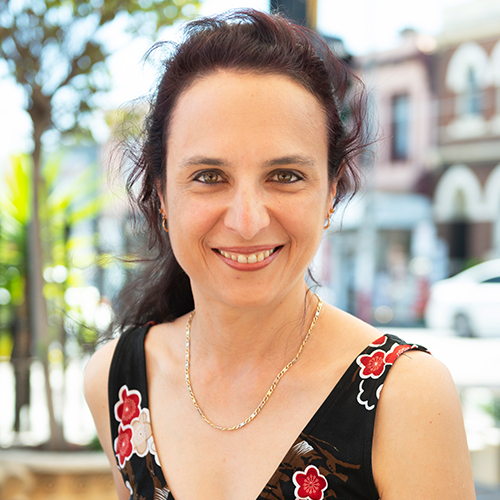

Renee obtained a bachelor of Physiotherapy in the year 2000 and worked in the areas of women’s health, musculoskeletal and paediatric physiotherapy. Her book, The Newborn Baby Manual, was published in 2011 and she became an IBCLC in 2012. She is now undertaking a PhD investigating breast hypoplasia as a reason for low breastmilk production. Renee's supervisors for her PhD are Professor Lisa Amir and Dr Meabh Cullinane. Renee currently has 6 papers published as a part of her PhD.
1. Distinguish between breast hypoplasia and insufficient glandular tissue.
2.Describe features which may be suggestive of breast hypoplasia.
3. List factors which may be involved with the pathogenesis of breast hypoplasia.
4. Describe ways to support breastfeeding women with breast hypoplasia.
Insufficient milk production is the primary reason women give for ceasing breastfeeding early. Breast hypoplasia is one reason for an inherent inability to make a full milk supply and results in reduced durations of exclusive and any breastfeeding. Previous research into breast hypoplasia and low milk production has been limited to case studies and a case series which identified various features suggestive of breast hypoplasia. A case series of 34 women with such features by Huggins and colleagues in 2000 modified an existing breast type classification from the breast surgery literature to categorise the condition. While the pathogenesis of breast hypoplasia is largely unknown, it is possible that endocrine disrupting chemicals or physiological alterations associated with various endocrine conditions may play a role in altering mammary gland development especially during key stages of breast development. This presentation will update delegates about what is known and what is still unknown about breast hypoplasia as a reason for low milk production and provide tips for supporting women with insufficient milk production as a result of breast hypoplasia.
Accreditation
CERPs - Continuing Education Recognition Points
Applicable to IBCLC Lactation Consultants, Certified Lactation Consultants (CLCs), CBEs, CLE, Doulas & Birth Educators. GOLD Conferences has been designated as a Long Term Provider of CERPs by the IBLCE--Approval #CLT114-07. This program is approved for 6 CERPs (5 L-CERPs and 1 E-CERP).
Dietetic CPEUs - Continuing Professional Education Units
Applicable to Dieticians & Nutritionists, this program is approved for 6 Dietetic CPEUs by the Commission on Dietetic Registration - the credentialing agency for the Academy of Nutrition and Dietetics.
If you have already participated in this program, you are not eligible to receive additional credits for viewing it again. Please send us an email to [email protected] if you have any questions.
Additional Details
Viewing Time: 4 Weeks
Tags / Categories
(IBCLC) Clinical Skills, (IBCLC) Development and Nutrition, (IBCLC) Education and Communication, (IBCLC) Equipment and Technology, (IBCLC) Infant, (IBCLC) Pathology, Breastfeeding & Health, Ethics for Lactation Professionals, Hand Expression & Breast Massage, Human Donor Milk, Induced Lactation & Relactation, Pumping & Milk Expression
How much time do I have to view the presentations?
- The viewing time will be specified for each product. When you purchase multiple items in your cart, the viewing time becomes CUMULATIVE. Ex. Lecture 1= 2 weeks and Lecture Pack 2 = 4 Weeks, you will have a total of 6 weeks viewing time for ALL the presentations made in that purchase.
- Time for viewing the talks begins once you purchase the product. For Live Webinars & Symposiums, the viewing period begins from when the live event takes place. Presentations can be accessed 24/7 and can be viewed as many times as you like during the viewing period.
What are bundled lectures?
- Presentations may be available individually or via a bundled package. Bundled lectures are a set of lectures that have been put together based on a specific category or topic. Some lectures will be available in both individual and lecture form, whereas others will be available only via a bundled lecture pack.
Will there be Handouts?
- YES! Each lecture comes with a PDF handout provided by the Speaker.
Some lectures include a Q&A, what does that mean?
- During our online conferences, presentations that occur live are also followed by a short 15 minute Question & Answer Session. The Speaker addresses questions that were posted by Delegates during the presentation. We include the recording of these Q&A Sessions as a bonus for you.
How can I receive a Certificate?
- If this presentation offers a certificate, once you are done viewing the lecture or the lectures within a bundle, submit your attendance record in order to be able to download your certificate. You'll be able to see which credits are offered for the lecture by hovering over the "Credits Available" link within the "Speakers & Topics" tab.
Professionals that selected this package also viewed

|
|

|










